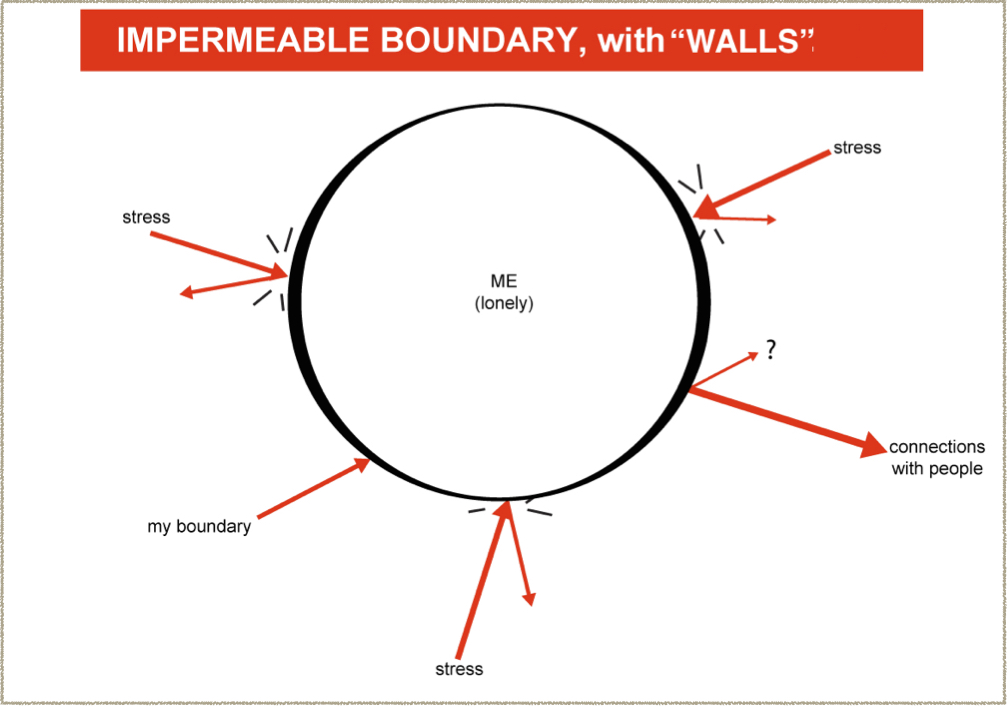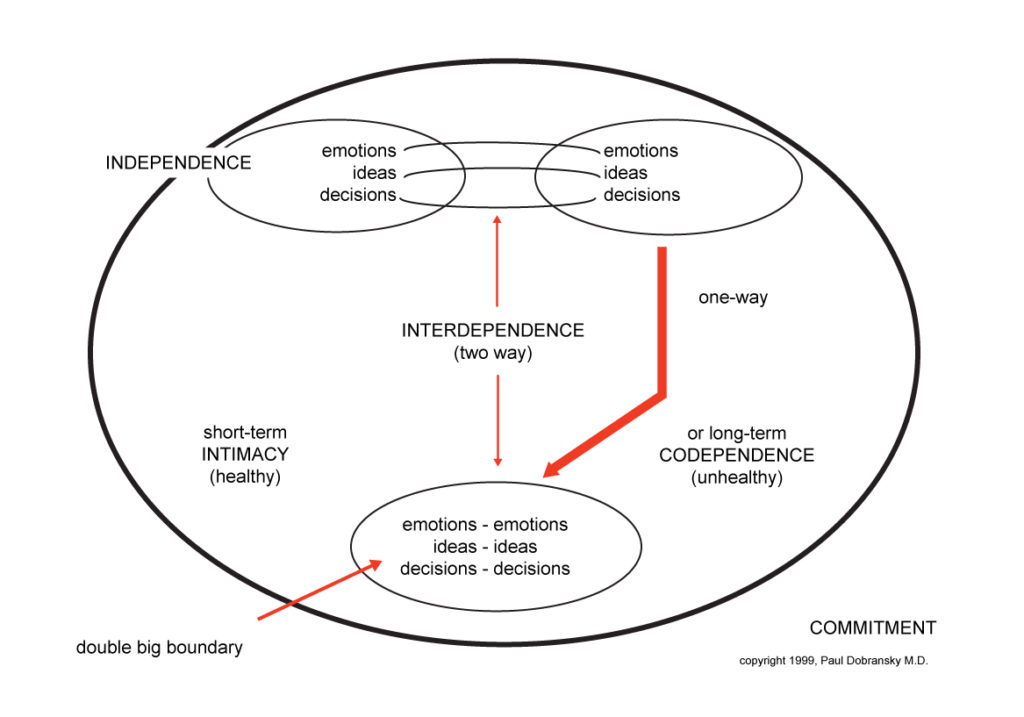Independence is a state of connection between two people which, like an opposite to the state of intimacy, allows someone to reorient themselves to their personal identity, beliefs, limits and preferences. In occasional use, it lends balance to a mature, romantic relationship.
Like the proverbial "porridge" being too hot or too cold, imabalnce in the use of independence is bad for a lasting relationship, instead of being just right. Too little of the state is codependence, and too much of it is cold and unintimate, overindependence. When the latter occurs, it may be due to past trauma and self-protection and overcompensation, since the unhealthy state is caused by too many boundary walls in the person. This is like "psychological scar tissue" from past hurts and stresses which do protect the person, but also starves them for connection, intimacy and the personal growth that comes from relating to others intimately. independence, and interdependence, pertain to the function of personal boundaries between the two people. In the case of codependence, there must be a preponderance between the two people, of having more boundary holes in their personal boundary than other boundary anatomy such as boundary walls, or the most mature boundary anatomy of all: boundary doors.
In the even less mature opposite state of overindependence, called codependence, the two people, by way of their preponderance of boundary holes, have a tendency to invade each others' privacy and feel entitled for the other person to maintain each others' resources, without expectation of receiving value back.
For the overly independent person, this arrangement may seem like "self-protection," but it keeps them away from the very thing they want - a loving relationship.
Instead of being overly independent, we need to try for the "Goldilocks Zone" of relationships.
How do people get out of overindependence? The obvious first strategy would of course be to begin to open the boundary walls in one's personal boundary, turning it more into a boundary door that is more dynamic and attuned to the nature of how they treat each other at that time, and what their needs are. Sometimes people need to get back to their roots of personal interests and identity, and sometimes they need more togetherness. If the partner is not willing to change, or open up, then of course they are not offering friendship anymore, which depends on a sharing of emotion mutually, and they are not offering partnership anymore, which depends on a sharing of goals and intellectual resources.
The next move one might need to do to share ideas and emotional energy intimately may be to try periods of more intimacy in order to create a boundary door that proves its own function by closing when things are too stimulating or reminiscent of past hurt or abuse. But the positive side would also be that by comparison to the past, the power of a boundary door that opens and closes, demonstrates how truly safe it is to have one - that one can sometimes enjoy intimacy without feeling completely vulnerable or open to misuse or abuse (as in codependence.)
The highest level to reach in a relationship will look somewhat similar to independence in the "togetherness" involved. However, this more mature state of togetherness is called, "interdependence." Which is a state that honors the collaborative effort of two people, sometimes, but also honors the sacrosanct nature of an individual's identity even within the relationship. This relies on the most mature boundary anatomy, called boundary doors.



